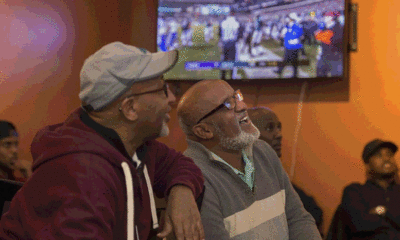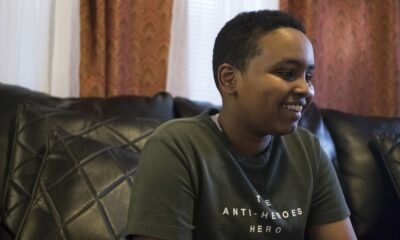 The most popular name for newborn boys in St. Cloud is now Henry. But closing fast is a name that reflects the central Minnesota city’s growing diversity — Mohamed.
The most popular name for newborn boys in St. Cloud is now Henry. But closing fast is a name that reflects the central Minnesota city’s growing diversity — Mohamed.
For the first time, Mohamed cracked the most popular boys’ names in 2017 at the St. Cloud Hospital, which delivers nearly 3,000 babies a year. Sixteen newborn boys went home from the hospital last year with the name Mohamed, which tied with Liam for second place. Eighteen baby boys delivered at the hospital were named Henry.
And for the first time, Salma, an Arabic name, cracked the top 10 list of popular names for newborn girls, coming in at No. 9.
“Our community is really growing and you can see that in hospitals,” said Hudda Ibrahim, who wrote a book on Somali immigration to central Minnesota. “People are keeping those traditional names.”
Mohamed has several variations and is one of the most popular names worldwide for Muslim parents.
The St. Cloud area has the largest Somali population in the state outside the Twin Cities. Somali-American families name their firstborn sons after the prophet with hopes that their child will take after him, Ibrahim said.
At the St. Cloud Hospital, which has the largest birthing center in Stearns County, the name Mohamed has steadily climbed the list of most popular baby names. It first made the list in 2015, when it was the sixth-most popular name. A year later, it climbed to No. 5.
The St. Cloud area isn’t alone in noticing a spike in the number of baby boys named Mohamed. Of more than 6,000 boys and girls born at HealthPartners hospitals across the region in 2017, Mohamed was the 13th most popular name.
In Minnesota, which has the largest Somali population in the U.S., Mohamed first made the list of the state’s 100 most popular baby boy names at No. 98 in 2013 and rose to No. 94 two years later, according to the U.S. Social Security Administration. But it didn’t crack the top 100 in 2016, however, the most recent year statistics were available.
Pediatrician Marilyn Peitso said she isn’t surprised by the trend in St. Cloud after watching the baby nursery growing increasingly diverse in recent years. Parents searching for baby names are also choosing more variety than in years past, she said.
“There’s sort of an evolution,” Peitso said. “Not all names come back.”
Tim and Emma Provo, of Monticello, Minn., studied lists of top baby names to make sure they didn’t give their daughter a name that was trendy now. Rather than name their daughter Ava, the most popular name in St. Cloud in 2017, they picked Molly, which didn’t make the hospital’s top 10 list, for their girl, who was born on Monday.
“I wanted something different but simple,” Emma Provo said from her St. Cloud Hospital room. “We wanted our kid to be unique.”
In Minnesota, Evelyn and Henry were the top names for babies in 2016 while in 2015, Olivia and Henry were No. 1, according to the U.S. Social Security Administration.

The popularity of baby names often reflect sociological patterns, with parents taking inspiration from celebrities or hit movies and TV shows. Even economics can play a role, with parents tending to choose more common names during bear markets and more unusual names during a booming American economy, according to one study.
A record 2,957 babies were born at the St. Cloud Hospital in 2017

 Minnesota23 hours ago
Minnesota23 hours ago
 KENYA1 day ago
KENYA1 day ago
 Briefing Room1 day ago
Briefing Room1 day ago
 KENYA1 day ago
KENYA1 day ago
 Crime1 day ago
Crime1 day ago
 UK1 day ago
UK1 day ago
 Minnesota1 day ago
Minnesota1 day ago




























You must be logged in to post a comment Login